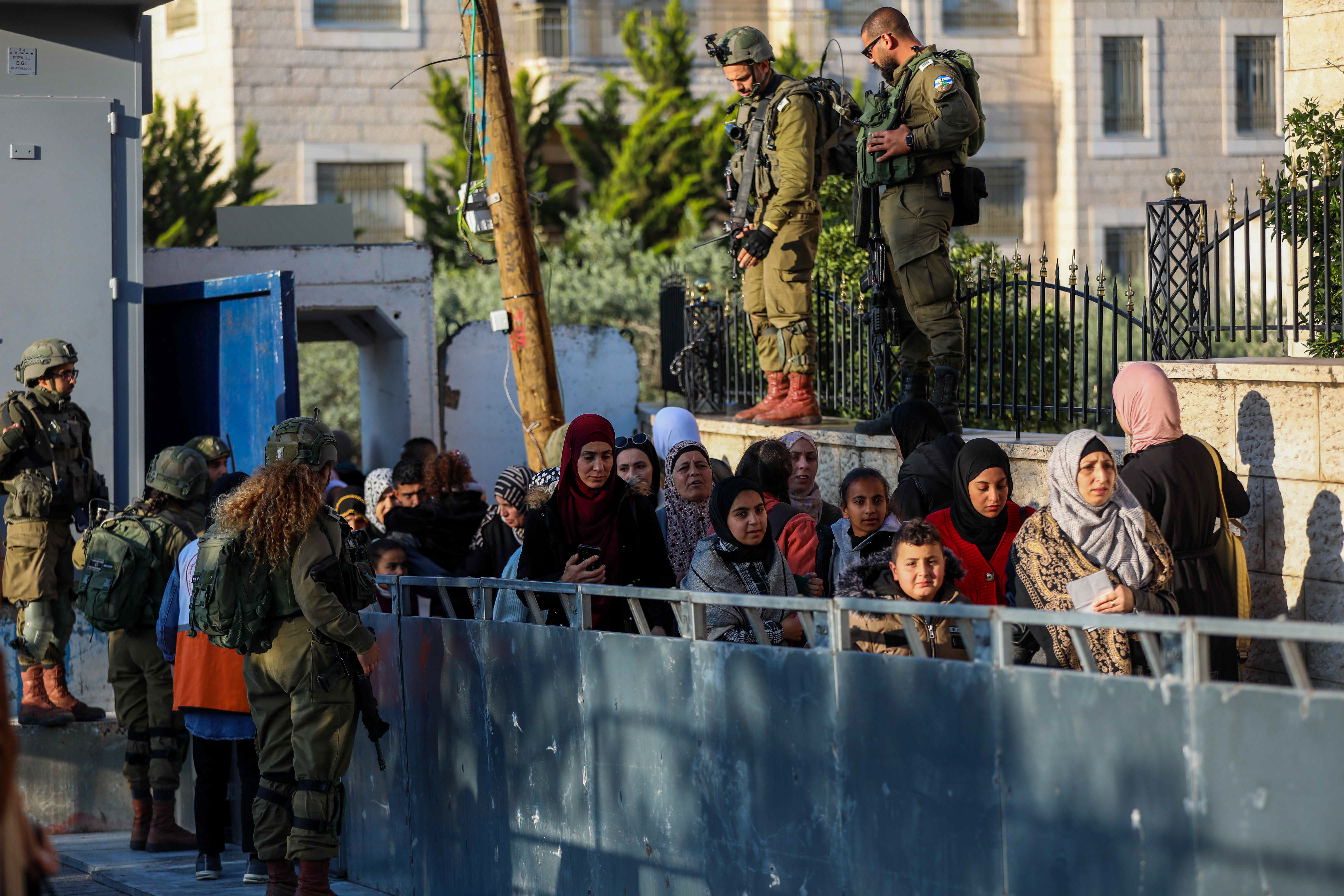Preparing for Ramadan as Israel Arms Itself
In a few days, Israel's Muslim citizens will begin celebrating the month of Ramadan. While safeguarding this ritual and protecting freedom of worship, security forces will face challenges in defending public security, as this is considered a sensitive time. With the influx Israeli citizens taking part in the civilian defense squads and licensing themselves, the police must make serious efforts to ensure all Israeli citizens feel safe.

Palestinians making their way to Friday prayers for Ramadan in April 2023. Photo by Wisam Hashlamoun/Flash90
In recent months, the Ministry of National Security has been spearheading a campaign, titled “Israel Is Arming Itself,” that is ostensibly intended to restore our safety and sense of security after the brutal and painful terrorist assault on October 7. As a result of the campaign, many more citizens now have licensed private handguns in their homes or other weapons they have by virtue of a defense related position, such as "kitot konenut," the civilian defense squads affiliated with the police.
Alongside this rapid armament largely taking place in Jewish society, crime and violence continue to surge in Arab society. The number of victims of violent crimes by Arab perpetrators in Arab society has skyrocketed since the current Government took office. In 2023, the number of murder victims was 244 men and women, more than double compared to the previous year. Media reports from the first weeks of 2024 do not suggest any improvement in how the authorities are dealing with this grave situation.
It is, therefore, unsurprising that a recent survey by the Israel Democracy Institute found that the share of Israeli Arabs who think that the State is successfully ensuring the security of its citizens has declined since 2022, while the percentage of Jewish citizens who believe the state is successful in doing so has actually increased. What is more, IDI surveys find that even though a record number of Israeli Arabs say they feel part of the country and its problems—70% in November 2023—anxiety about their physical safety has been trending upward since October 7. By contrast, this apprehension has started to decrease among Jewish Israelis.
Meanwhile, in a few days the Muslim citizens of Israel will begin celebrating the month of Ramadan. In addition to safeguarding this ritual observance and freedom of worship, security forces will be facing the challenges of defending public order and security, as this is considered a month full of tension and sensitivity. The police say that in recent months they have made detailed preparations for Ramadan; this includes learning the lessons of the violence that was associated with the Arab society during Operation Guardian of the Walls in May 2021.
To make it possible for the police to properly ensure security during Ramadan, they must make a serious effort to ensure that all Israeli citizens—regardless of their religion—feel their safety is important to law enforcement, especially in light of the recent developments in internal security, namely the establishment of new armed civilian defense squads, the proliferation of private gun ownership and the many unregulated groups of armed civilians that have sprung up.
The police must account for the thousands of people who have recently been recruited to the civilian defense squads, ensuring that clear instructions are given surrounding the limitations that apply to them during operational activity. For example, according to police procedures, these volunteers are not authorized to intervene directly in incidents and disturbances of the peace, not even when a uniformed police officer is present. In addition, they need to be reminded of and instructed in the open-fire orders, because in the case of an emergency event, they are authorized to provide a first response until the police arrive. This means that they do not have a specific operational briefing before they go into action.
Furthermore, police preparations must also take into account the tens of thousands of people who have become private handgun owners since October 7. The National Security Ministry’s Israel Arming Itself campaign has been roundly criticized, in part because the minister has called on citizens to intervene during security incidents, even though the ministry cannot guarantee that all private gun-owners in Israel are duly fit, trained, and competent. To mitigate such risks, the Ministry of National Security and Israel Police should be contacting private gun-owners directly to make them aware of the limitations that apply to the use of their firearms. In addition, the police need to guarantee that unofficial armed civilian groups—which operate without any legal mandates or oversight—never act on their initiative, and certainly not in period as sensitive as Ramadan. In addition to the potential for a severe blow to public peace, their activities are not coordinated with the security forces and are liable to interfere with the police operations and those of other security services.
In addition to strengthening security forces’ operational preparations, a key element of preserving internal security is the Government’s commitment to implementing steps to reduce the disparities and promote socioeconomic development of Arab society, as part of the overall effort against crime and violence. Last month there were media reports that the Shin Bet expressed fear that the proliferation of civilian defense squads and unchecked distribution of weapons to Jewish citizens increases Israeli Arabs’ feelings of insecurity. It warned against the sweeping cuts in the budgets earmarked for Arab society, which it feared would cause strategic damage to national security and resilience for all citizens. The Government recently submitted the draft State Budget for 2024, which includes cutting more than 15% of the funds that were earmarked for reducing disparities and fighting crime in the Arab sector. In light of this worrisome cut, as well as the changes in the internal security situation reviewed above, it is essential that the state does everything in its power to ensure the security of all its citizens.
This article was published in Israel Hayom.
